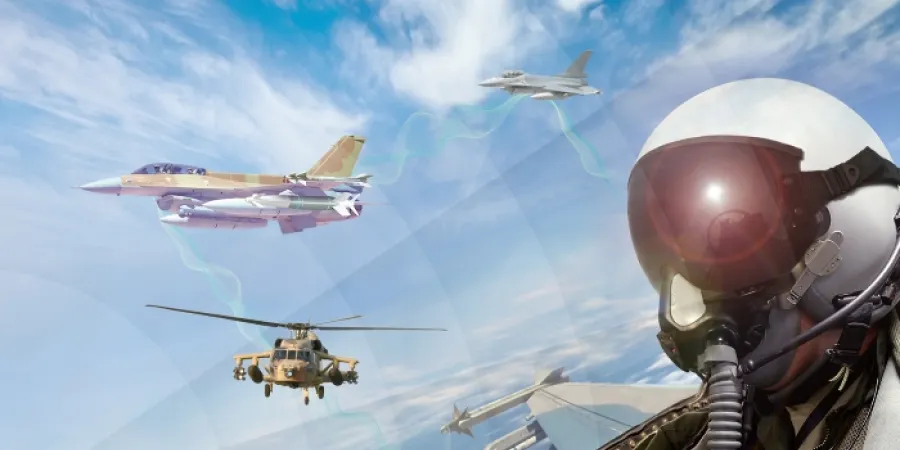Rafael to supply BNET software defined radios to Asian air force
The communication systems can be integrated into fighters, helicopters and ground control stations
IsraelDefense
| 15/06/2021
Israel's Rafael Advanced Defense Systems announced Tuesday that it has been selected by an Asian air force to equip its fleet of aircraft with the company's BNET-AR communication system.
The BNET family of software defined radio (SDR) systems provide a robust voice and data-link solution and support simultaneous data, voice and video services with multiple auto relays, according to Rafael.
BNET, which is operational and combat-proven with a number of air forces around the world, features a unique software-defined radio and network architecture, delivering wideband communications with low delay and reliable connectivity, the company said.
The variant that will be supplied is the BNET-AR, a modular multiband SDR for airborne platforms, integrated onboard fighters and helicopters as well as in ground control stations, enabling net-centric operations and real-time situation awareness.
BNET is a spectrum-aware SDR utilizing the spectral arena of the battlefield to the fullest in a cognitive way, thus addressing the challenges of the modern battlefield such as limited spectrum and the connection of multiple sensors and shooters. All this is achieved by BNET's Multi-Channel Reception (MCR) technology that enables it to receive and analyze information from numerous frequency channels simultaneously using a single RF head, according to the company.
VP Yoav Wermuth, head of Rafael’s C3I directorate, said "This new contract strengthens our position as a major supplier of aerial communication systems as vital enablers, required to be agile, allow fast deployment, be highly scalable, and remain robust in the face of the chaos of battle, all the while operating under constant jamming and cyberattacks."

The BNET-AR. Photo: Rafael
The communication systems can be integrated into fighters, helicopters and ground control stations
Israel's Rafael Advanced Defense Systems announced Tuesday that it has been selected by an Asian air force to equip its fleet of aircraft with the company's BNET-AR communication system.
The BNET family of software defined radio (SDR) systems provide a robust voice and data-link solution and support simultaneous data, voice and video services with multiple auto relays, according to Rafael.
BNET, which is operational and combat-proven with a number of air forces around the world, features a unique software-defined radio and network architecture, delivering wideband communications with low delay and reliable connectivity, the company said.
The variant that will be supplied is the BNET-AR, a modular multiband SDR for airborne platforms, integrated onboard fighters and helicopters as well as in ground control stations, enabling net-centric operations and real-time situation awareness.
BNET is a spectrum-aware SDR utilizing the spectral arena of the battlefield to the fullest in a cognitive way, thus addressing the challenges of the modern battlefield such as limited spectrum and the connection of multiple sensors and shooters. All this is achieved by BNET's Multi-Channel Reception (MCR) technology that enables it to receive and analyze information from numerous frequency channels simultaneously using a single RF head, according to the company.
VP Yoav Wermuth, head of Rafael’s C3I directorate, said "This new contract strengthens our position as a major supplier of aerial communication systems as vital enablers, required to be agile, allow fast deployment, be highly scalable, and remain robust in the face of the chaos of battle, all the while operating under constant jamming and cyberattacks."

The BNET-AR. Photo: Rafael



